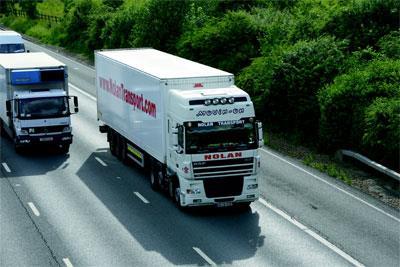
The recent case involving Irish haulier Nolan Transport is set to lay down how the regulations regarding cabotage and combined transport operations will be interpreted in the UK in future, writes Chris Hallsworth.
Upper tribunal judges ruled in July that where such operations are carried out, the onus is now clearly on the haulier to produce evidence – immediately available, carried in the vehicle and available for checking at the roadside – to demonstrate that the nature of the work being carried out does, in fact, fall within one of the exemptions.
Should this evidence prove insufficient to demonstrate compliance with the cabotage and/or combined transport rules, the vehicle will be detained by Vosa under the impounding regime.
Facts
The facts of the case are that on 17 May 2011, Vosa officials detained a Daf operated by the County Wexford-based haulier on the A477 in Pembrokeshire, saying that it did not have the required UK O-licence for the journey.
Nolan Transport argued that an O-licence was not required as the truck was undertaking combined transport – moving goods in one vehicle, using successively two or more modes of transport without handling the goods themselves in changing modes – and was therefore exempt.
On 20 May 2011, Vosa staff also stopped a Mercedes-Benz run by the company on the A40 coming from Pembroke Dock, on the same basis, but the company said it was exempt from the requirement for an O-licence because the vehicle was undertaking a properly constituted cabotage operation. Both vehicles were impounded by Vosa officials and Nolan lodged an appeal to have them returned.
Upholding the October 2011 decision of traffic commissioner (TC) for Wales Nick Jones, the upper tribunal judges said that as Nolan’s Daf was operating outside its country of origin (Ireland) and within the jurisdiction of the UK, the driver needed to provide full and correct documentation to show that the journey was within the scope of combined transport, which in this case he was unable to do.
In the case of the Mercedes, the driver could not satisfy the enforcement officer of each element of cabotage by being able to produce the correct paperwork.
From the inception of the European common market, member states have been wrestling with the problem of how soon a truly open market in the transport industry can be created.
Open market
Various attempts have been made since 1992 to open up that market but always with a watchful eye on the need to protect the transport industries within the individual states.
As was demonstrated in the Nolan case, those hauliers that are not established in another member state can only undertake national operations in it on a temporary basis.
■ Chris Hallsworth is a partner at Woodfines Solicitors. For further information on legal services for the road transport and haulage industry, go to woodfines.co.uk














